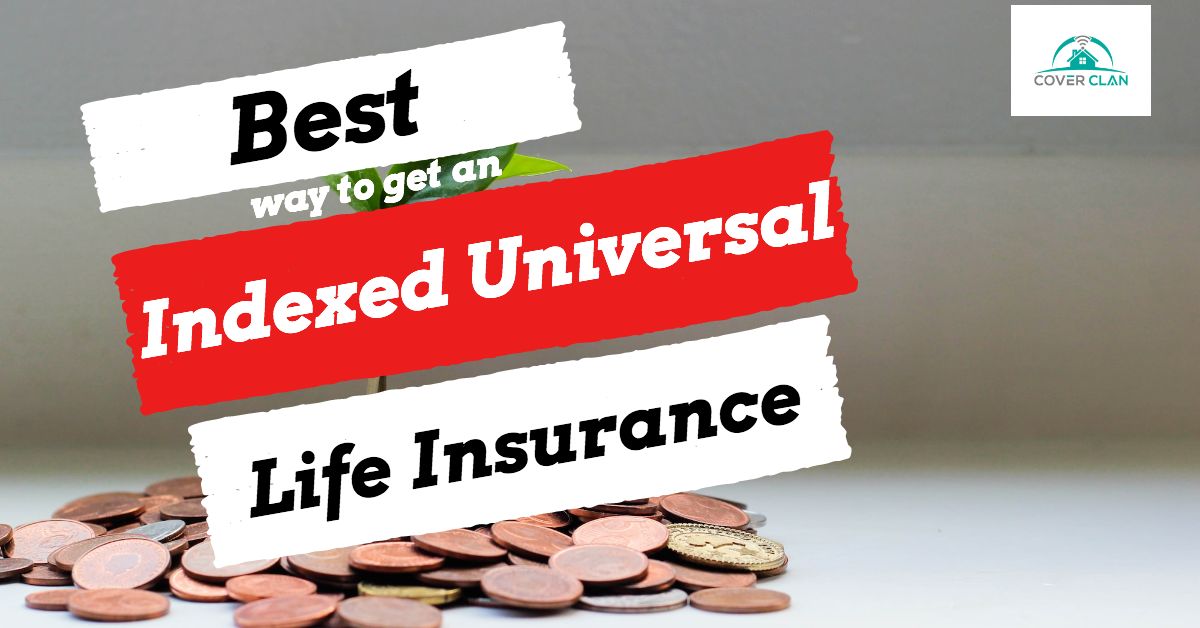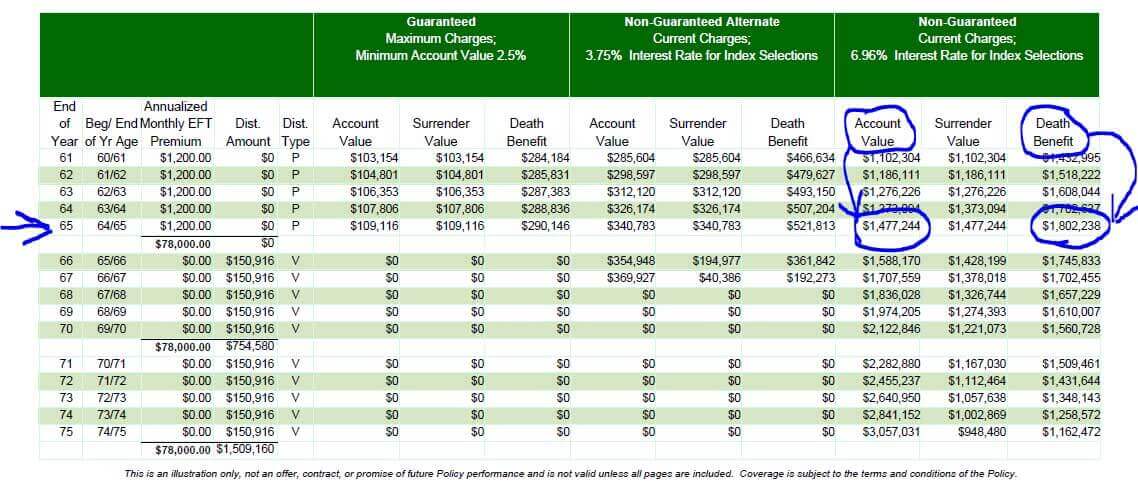All Categories
Featured
Table of Contents
1), typically in an effort to beat their group standards. This is a straw guy disagreement, and one IUL people like to make. Do they contrast the IUL to something like the Lead Overall Stock Exchange Fund Admiral Show no lots, an expenditure ratio (EMERGENCY ROOM) of 5 basis points, a turnover proportion of 4.3%, and a remarkable tax-efficient document of circulations? No, they contrast it to some horrible actively taken care of fund with an 8% load, a 2% ER, an 80% turnover proportion, and a horrible record of temporary capital gain distributions.
Shared funds usually make annual taxed circulations to fund proprietors, even when the worth of their fund has actually gone down in worth. Mutual funds not just need income coverage (and the resulting annual taxation) when the common fund is increasing in value, but can also impose earnings taxes in a year when the fund has actually gone down in value.
You can tax-manage the fund, gathering losses and gains in order to minimize taxable circulations to the capitalists, however that isn't in some way going to change the reported return of the fund. The possession of common funds may need the mutual fund owner to pay approximated tax obligations (iul life insurance cost).

IULs are very easy to position to make sure that, at the proprietor's fatality, the recipient is exempt to either revenue or estate tax obligations. The same tax obligation decrease techniques do not function almost too with common funds. There are numerous, commonly expensive, tax catches linked with the timed buying and marketing of common fund shares, traps that do not put on indexed life insurance policy.
Chances aren't very high that you're going to undergo the AMT due to your common fund circulations if you aren't without them. The remainder of this one is half-truths at ideal. As an example, while it is true that there is no revenue tax obligation because of your successors when they inherit the profits of your IUL plan, it is also real that there is no income tax because of your successors when they inherit a common fund in a taxable account from you.
Universal Life Policy Pros Cons
There are much better ways to stay clear of estate tax concerns than acquiring financial investments with reduced returns. Mutual funds might create earnings tax of Social Safety and security advantages.

The growth within the IUL is tax-deferred and may be taken as tax obligation free revenue via financings. The plan owner (vs. the shared fund manager) is in control of his or her reportable revenue, thus allowing them to reduce or also get rid of the taxes of their Social Security advantages. This is terrific.
Below's an additional very little concern. It holds true if you get a common fund for state $10 per share prior to the circulation date, and it disperses a $0.50 circulation, you are then going to owe tax obligations (most likely 7-10 cents per share) although that you haven't yet had any type of gains.
In the end, it's truly regarding the after-tax return, not just how much you pay in taxes. You are going to pay even more in taxes by utilizing a taxable account than if you get life insurance policy. Yet you're additionally most likely going to have more money after paying those taxes. The record-keeping demands for having shared funds are dramatically much more complex.
With an IUL, one's documents are maintained by the insurance provider, copies of annual statements are mailed to the proprietor, and distributions (if any type of) are totaled and reported at year end. This set is also type of silly. Obviously you must keep your tax obligation records in instance of an audit.
Accumulation Value Of Life Insurance
Hardly a reason to purchase life insurance coverage. Mutual funds are typically component of a decedent's probated estate.
Additionally, they go through the hold-ups and expenditures of probate. The proceeds of the IUL policy, on the various other hand, is constantly a non-probate distribution that passes beyond probate straight to one's called recipients, and is therefore not subject to one's posthumous financial institutions, unwanted public disclosure, or similar hold-ups and prices.
We covered this one under # 7, yet just to wrap up, if you have a taxed mutual fund account, you must put it in a revocable depend on (and even less complicated, use the Transfer on Fatality classification) to avoid probate. Medicaid disqualification and life time income. An IUL can give their proprietors with a stream of earnings for their entire lifetime, no matter of the length of time they live.

This is useful when organizing one's affairs, and transforming assets to revenue before an assisted living facility arrest. Common funds can not be transformed in a comparable manner, and are usually thought about countable Medicaid assets. This is an additional stupid one supporting that poor people (you recognize, the ones who need Medicaid, a federal government program for the inadequate, to spend for their assisted living home) should utilize IUL as opposed to mutual funds.
Term Insurance Vs Universal Life
And life insurance policy looks horrible when contrasted relatively versus a pension. Second, people that have money to get IUL above and past their retirement accounts are going to need to be dreadful at managing money in order to ever before get approved for Medicaid to spend for their retirement home prices.
Chronic and incurable illness biker. All policies will certainly allow an owner's easy accessibility to money from their plan, often waiving any type of abandonment penalties when such individuals experience a significant ailment, require at-home treatment, or become restricted to an assisted living home. Mutual funds do not offer a similar waiver when contingent deferred sales fees still put on a common fund account whose owner needs to offer some shares to money the expenses of such a keep.
Equity Indexed Life Insurance
You get to pay even more for that advantage (cyclist) with an insurance coverage policy. Indexed global life insurance coverage gives death benefits to the recipients of the IUL owners, and neither the proprietor neither the recipient can ever lose money due to a down market.
Currently, ask yourself, do you really need or desire a fatality advantage? I absolutely don't require one after I get to financial independence. Do I desire one? I expect if it were inexpensive enough. Naturally, it isn't affordable. On standard, a buyer of life insurance policy spends for the real price of the life insurance policy advantage, plus the expenses of the policy, plus the earnings of the insurer.
Best Iul Provider
I'm not totally certain why Mr. Morais tossed in the entire "you can't shed money" once more below as it was covered fairly well in # 1. He simply wished to repeat the best selling point for these things I expect. Once more, you do not shed small bucks, but you can shed genuine bucks, as well as face serious chance cost as a result of low returns.

An indexed universal life insurance plan proprietor may trade their plan for an entirely various policy without causing revenue taxes. A mutual fund owner can not move funds from one shared fund firm to an additional without selling his shares at the previous (therefore causing a taxed occasion), and repurchasing new shares at the latter, typically based on sales charges at both.
While it is true that you can trade one insurance plan for another, the factor that individuals do this is that the very first one is such a terrible plan that also after purchasing a new one and experiencing the very early, negative return years, you'll still appear ahead. If they were marketed the right plan the initial time, they shouldn't have any kind of wish to ever before trade it and experience the early, unfavorable return years again.
Latest Posts
Equity Index Life
Index Universal Life Insurance Tax Free
Universal Way Insurance